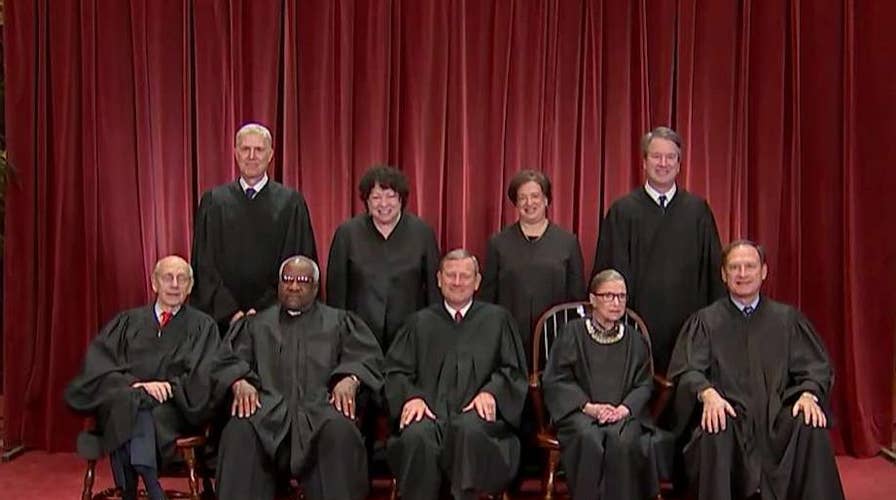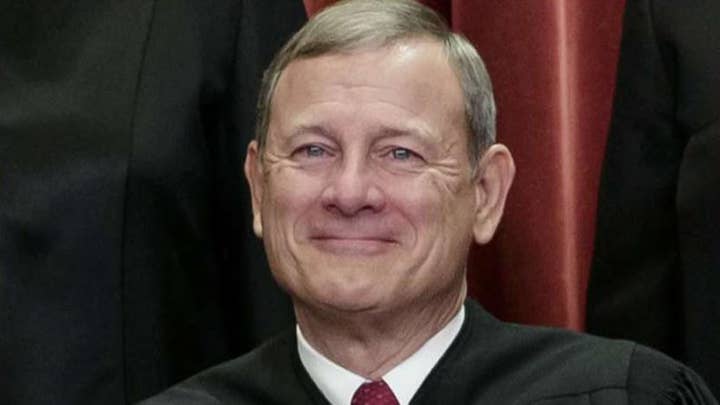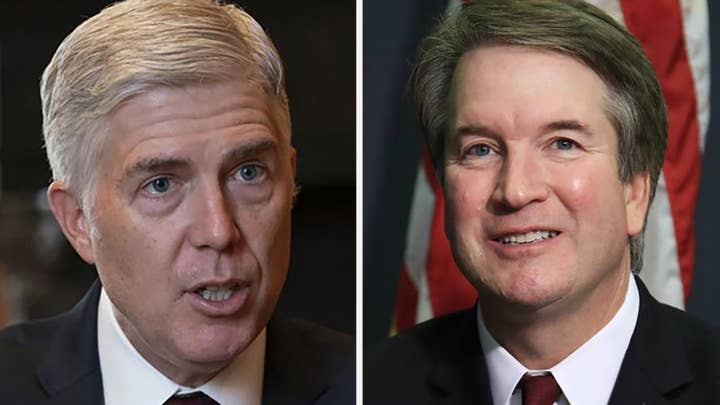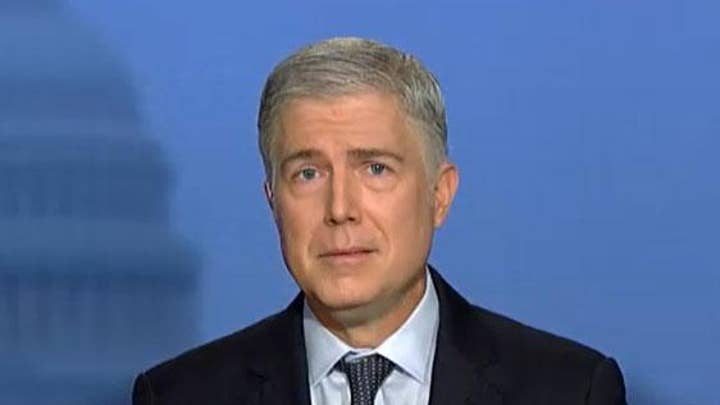Supreme Court's hot-button docket to be closely watched in 2020 election year
Correspondent David Spunt has a preview of the slate of big cases facing the high court in 2020.
Just hours after Democrats launched their impeachment inquiry into President Trump in September, Chief Justice John Roberts seemed to warn his fellow justices -- and the nation at large -- of a partisan storm headed the third branch's way.
"We don't go about our work in a political manner," Roberts said during remarks in New York. "That’s not how we at the court function and the results in our cases do not suggest otherwise."
"I’ve been elected by nobody," he added, noting federal judges enjoy life tenure, ostensibly free from changing political fortunes.
CHIEF JUSTICE PROMOTES CIVICS EDUCATION IN YEAR-END REPORT
Now the U.S. Supreme Court is poised to have a monumental 2020, with an impeachment trial that would feature the chief justice in a vital role, and a hot-button docket.
"You name it: immigration, executive power, gun control, the Supreme Court is increasingly being called upon to decide these issues that are really at the political fault line in America," said Thomas Dupree, a prominent appellate attorney and former deputy assistant attorney general. "I suspect it's not a role the court is actively looking for but it seems inevitable that they're again going to be drawn into these political controversies."
Like it or not, the nine justices know their rulings on a range of issues will be closely watched from a partisan perspective, especially in a presidential election year.
Among the cases they will decide in coming months:
-- Abortion, and a restrictive Louisiana law on who can perform the procedure at local clinics.
-- Immigration, and the Trump administration's plans to end the so-called "DACA" program for young undocumented immigrants.
-- Civil rights protections for LGBTQ workers, and whether employers can be sued for job discrimination.
-- Gun rights, dealing with New York City's onetime ban on transporting a handgun outside the home.
-- And President Trump's efforts to shield his banking and financial records from congressional committees.
"The court will be an issue in 2020 but that's perfectly normal. It was a huge issue in 2016, it helped get President Trump elected," said Paul Smith, a lawyer and Georgetown University law professor who has argued 21 cases before the high court. "Conservative voters said we want to be able to pick the next justice and they really vote that issue and it will be again precisely because it's become such an important part of our system."
CHIEF JUSTICE ROBERTS POISED FOR STARRING ROLE IN A TRUMP IMPEACHMENT TRIAL
Roberts is set to play a major role -- the man in the court's center, literally and figuratively. He is a conservative jurist, but has voted with his more liberal colleagues to put some of Trump's policies on hold.
As Roberts presides over his 15th term as chief justice, there has been much disagreement in the legal and political community over his leadership role on the high court. He has been described as someone deeply concerned about the court's non-partisan reputation, who seeks to move cautiously and incrementally, pushing back when he can against efforts to move his bench too far to the right, too fast.
And the chief justice could be poised to preside over a Senate impeachment trial, a constitutional requirement that will test his leadership skills against a highly partisan exercise. Ironically, some conservatives, angry at Roberts' June vote blocking a citizenship question on the 2020 census -- dealing a major setback to the Trump administration -- immediately called for his impeachment.
He has tried to deflect criticism he is turning his back on conservative principles.
"If we uphold a particular political decision, that remains the decision of the political branches, and the fact that it may lead to criticism of us is often a mistake," he said recently. We do have to be above or apart from the criticism because we, of course, make unpopular decisions -- very unpopular decisions."
CLICK HERE TO GET THE FOX NEWS APP
As head of the entire federal judiciary and the Supreme Court, Roberts -- known by some as the "first among equals" -- could prove the equalizer, the "swing" or deciding vote in a range of pending appeals that could be added to the docket in coming weeks:
-- Religious liberty and whether certain business owners can deny their artistic services to LGBT customers by citing their sincere faith.
-- Gerrymandering claims in several swing-state election boundaries.
-- And congressional subpoenas for top Trump aides-- a prelude to perhaps another round of impeachment articles against the president.
Progressive groups like the ACLU have been aggressive in taking the administration to court-- knowing the nine justices will have the last word.
"We absolutely take issue with many of the Trump administration's initiatives on immigrant rights, on the border wall, on its effort to overturn Roe vs. Wade. So we've been very busy fighting back," said David Cole, the group's national legal director. "But that's because in our view the Trump administration has violated constitutional law in so many fields and for the most part the courts have agreed with us."
Just who sits on the capital's most exclusive club will also be an election-year focus. Trump has touted the two justices he has appointed -- Neil Gorsuch and Brett Kavanaugh. They have so far proven to be reliable conservatives -- exactly what the president and his supporters had hoped.
The senior associate Justice Clarence Thomas, 71, has already dismissed suggestions he will step down anytime soon.
And the court's oldest member, 86-year-old Justice Ruth Bader -- despite recent health scares including cancer, the flu, and fractured ribs -- is also determined to stay put.
"How am I feeling? Well, as this audience can see that I am alive," she said to cheers at an August event. "It's the best and hardest job I've ever had, and it's kept me going through four cancer bouts."
The justices get back to work with oral arguments resuming in two weeks. Then a sprint to the finish, with the biggest, most contentious rulings issued in late June -- right in the middle of the election race.








